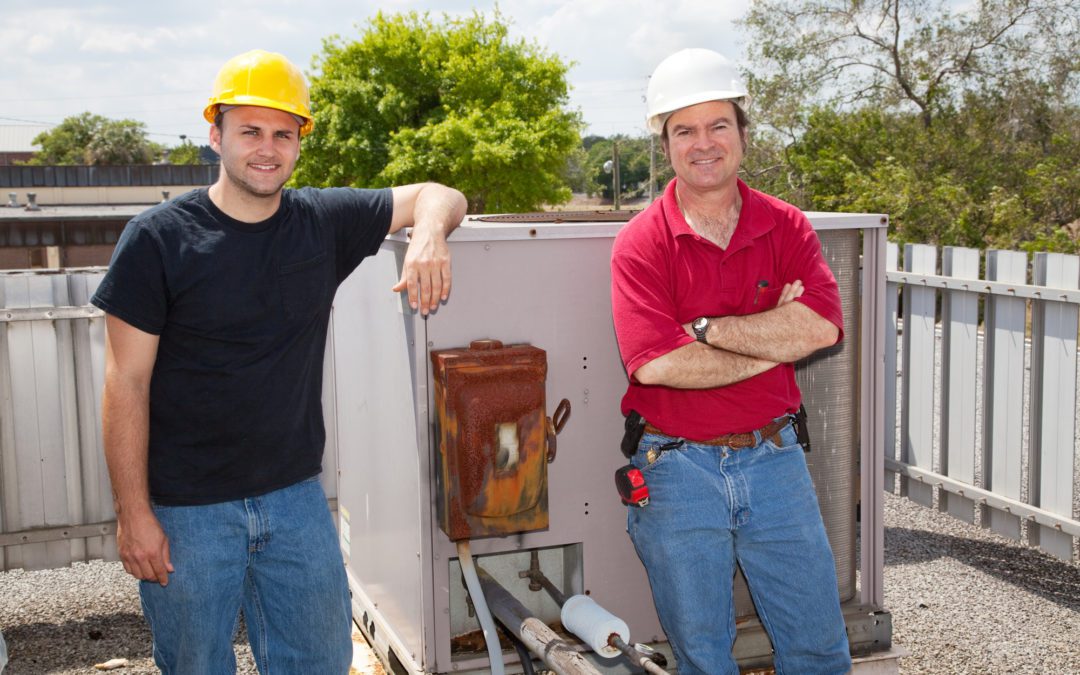If you are looking for a career that is rewarding and does not involve sitting at a desk all day, find out how to become an HVAC tech. For those of us who are better at working with our hands, this career can be highly rewarding with strong growth prospects and a healthy financial outlook.
The heating, ventilation, and air conditioning industry is continually growing because it maintains an essential service that affects the daily lives of millions of individuals across the United States and around the world. In fact, the HVAC industry will grow as much as 15% by 2026. You don’t get much better than that regarding future prospects.
If you dread the idea of being stuck in an office with your nose in front of a computer screen all day, becoming an HVAC tech may be the ideal solution. The HVAC industry offers exciting and diverse career opportunities that will include you venturing out in the ‘field’, servicing HVAC systems and installing new ones each day. If this daily routine sounds perfect for you, then read on to dive deeper.
What You Need to Do to Become an HVAC Tech
To become an HVAC tech, you will have to fulfill certain requirements. This career path does not require years of study after high school to qualify, although industry professionals do recommend that you still take advantage of every study opportunity that comes your way: they are likely to aid you in your career growth.
- Most U.S. states require you to have at least a high school diploma to pursue a technical career in the field of HVAC. Without a high school diploma, you will find that work opportunities are scarce, as you will be restricted from practicing in the HVAC space in most areas.
- If you are still in high school, you can take classes that are pertinent to pursuing a career in a technical vocation, such as shop classes, woodwork and metalwork, physics, mathematics, and computer science. Also, if they are available, you can familiarize yourself with technical drawing and blueprint reading, as these skills will come in handy in this industry.
- Consider pursuing an HVAC Certificate. While it is not required under federal law for you to work in the HVAC field, many states have their own laws regarding minimum qualifications to receive recognition as a professional in the field. Acquiring an HVAC certificate from a recognized training institution will provide you with a relevant and valuable qualification and widen your options for work opportunities and career prospects.
- Apply for and complete an HVAC apprenticeship. Some individuals feel that once they are in possession of the relevant certificate, they do not need to complete an apprenticeship.
However, while this principle is true from a technical standpoint, you should keep in mind that there is a vast difference between theory and practice–a divide that is best for you to cross on the back of experience. An apprenticeship will allow you to learn how things are done in practice. You will work alongside seasoned professionals, and by the end of your apprenticeship, you will be a professional yourself.
- We all know that the more certificates you have behind your name, the easier it is to earn immediate trust as a knowledgeable professional. You can investigate the process of acquiring relevant industry certifications. There are many to choose from—perhaps the most prominent among industry certifications is NATE NATE stands for North American Technician Excellence, presented by the largest U.S. certification organization for the heating, ventilation, air conditioning, and refrigeration industries.
What You Will Learn on Your Journey to Becoming an HVAC Tech
The responsibilities of an HVAC professional are diverse and include several technical competencies, all of which you will learn on your journey to qualifying as an HVAC tech. You will gain extensive knowledge on the inner workings of HVAC systems, including how to identify electrical faults and other types of faults in HVAC systems and air duct systems, and how to plan and install new HVAC systems.
- You will learn what HVAC systems are and how they work. You will receive extensive theoretical training before moving on to the more technical aspects of working in the HVAC industry.
- You will receive diagnostic training, including how to properly use testing tools and equipment and how to correctly interpret readings delivered by these tools.
- HVAC includes several competencies—such as principles of electronics, electricity, and mechanics—that all form a part of your training regimen.
The HVAC industry presents exciting career opportunities for individuals willing to work for them. Highly respected HVAC companies such as Valley Comfort Heating and Air provide stable work and attractive, competitive salaries to hundreds of HVAC professionals.
HVAC represents one of few technical qualifications that you can acquire relatively quickly. Qualifying as a technician takes less than one year of study—excluding the apprenticeship, which typically lasts for another year, and additional certifications, which can take a few weeks to a few months each to complete.

